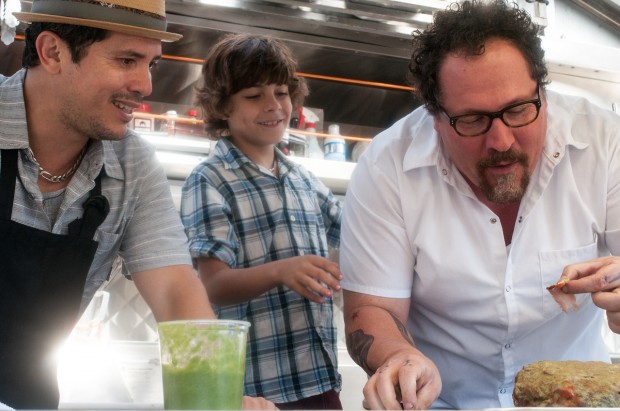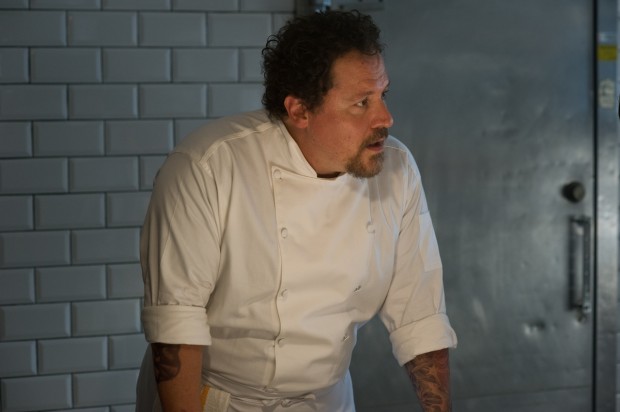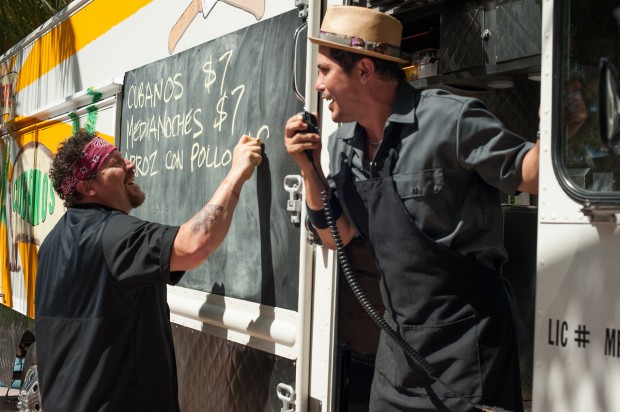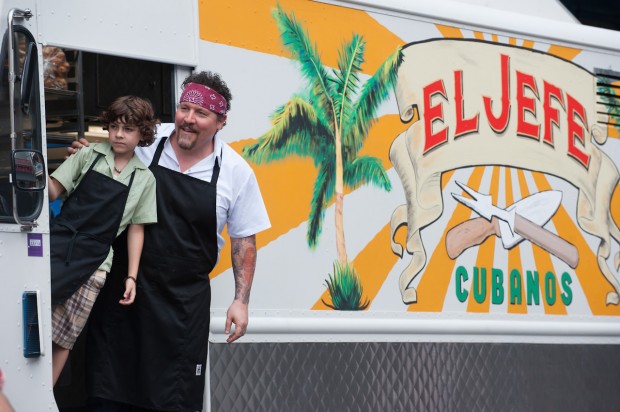
I know shockingly little about Hollywood or pop culture.
I don’t even have TV.
But as a local food entrepreneur, the movie Chef got me thinking. Weaved into a fun and yummy story are 10 important lessons that you as a local food startup can use to keep yourself and business on track.
Let’s find out what they are.
It’s pretty easy to relate to the 2014 movie Chef. It’s a story that follows the classic hero’s journey of crises and self-transformation.
It’s cleverly wrapped in themes typical of modern life and culture:
- The frustration of doing uncreative work for people you don’t like
- The fear of failure and following your heart
- The disconnect of broken families
- The local food movement
- The transition back to simplicity
- Entrepreneurship and social media

What can you learn from Chef?
What can a enterprising (or wannabe) food truck, food hub or local farmer learn from the movie Chef?
1) Do what excites you
All the success in the world will not make you happy if your heart’s not the driving force behind your work. Despite being a top rated chef in a top rated restaurant, our hero was frustrated that he couldn’t freely express himself.
2) Seeking approval is a recipe for disaster
Carl put so much importance on the review of one food critic, he changed himself and his menu. He compromised his integrity and core values by playing it safe.
And the critic tore him apart for it.
3) If you aren’t happy with your work, nobody will be

4) There is opportunity in crisis
Difficult situations are often painful wake up calls. They force us to take steps we wouldn’t otherwise take. They push us into the deep-end where it’s either sink or swim.
Chef Carl Casper was angry at the food critic for being mean, but without that conflict would he have left the security of a regular pay check?
We learn from crises and we evolve when we choose to ‘swim’.
5) You can’t move forward without accepting the present
We may influence the future, but we cannot change the present. It is already here.
If our hero chef didn’t accept that he couldn’t get another job, he would have continued fighting the wrong fight. But through acceptance, he opened himself up to the possibility of starting a food truck even though at the time he thought that was a step back, not forward.
6) You can’t predict the future
Our little minds have no idea how the dots connect going forward. We can only follow our hearts and trust that they will.
Do you think Carl could have planned a professional comeback on paper without first taking a single step? Do you think he could have imagined that it would reconnect him with his son?
7) Doing what you love isn’t always easy
Carl had to swallow his pride to get startup funds from the ex-lover of his ex. He had to roll up his sleeves to get dirty jobs done.
To start fresh you have to purge yourself of excess baggage and operate outside your comfort zone.
8) Passion attracts followers
Despite a recent promotion to sous-chef, the hero’s former kitchen aid quit his job to join Carl on his new adventure – without any promise of pay.

9) Your niche will find you
The idea for a food truck came from Casper’s ex-wife who tricked him to go to Florida to find funding and inspiration in Cuban food and culture. Tasting a real Cuban sandwich in Little Havana reminded Carl why he became a chef in the first place:
Good, honest simple food (not market research).
10) Less is more
It’s easy to think that we need more skills, money or experience to achieve our goals. But we need to trim the fat, simplify and distill our existing resources.
Was Carl’s solution to add another course to his gourmet menu or use more exotic spices?
No. He simplified to a minimalist kitchen on wheels where he could express himself in simple local food made with love from quality ingredients. Because he was lean and agile, he could afford to sell his Cuban sandwiches at fair prices to normal people.
Chef movie review
Although there’s much to like and learn from the movie Chef, it’s still Hollywood.
Why work when you can tweet?
In my view, Chef undermines the importance of hustle and patience – qualities that every successful food entrepreneur needs. It gives the impression that starting up is easy.
Clearly social media has a role to play in modern business and you should be smart about it, but you shouldn’t expect overnight success. Hoping you’ll succeed because of technology is not only unrealistic, it is counter-productive. You can’t escape sweat equity and applied creativity.
Only steady growth is sustainable. It gives you time to learn from mistakes that every new entrepreneur makes.
You don’t want to be twitter’s flavour of the month.
Is success measured in quantity or quality?
In my opinion, Chef’s ending is cliché and inconsistent with the main message of the film. Carl’s selling out to the ‘dream offer’ reduces a transformational journey to a means to an end.
They were having fun in the food truck and had more customers than they could handle. Why give up after a few weeks?
You could argue that Carl Casper was taking opportunities that life presented him. But I think a better ending would have been “Thanks, but no thanks. I don’t need your help. This is a small independent family business and we are happy.”
Maybe I’m too idealistic.
Maybe, like the main character, a big Hollywood studio was trying too hard to impress a counter culture they don’t fully understand.
Or maybe I’m just wrong.
What do you think?